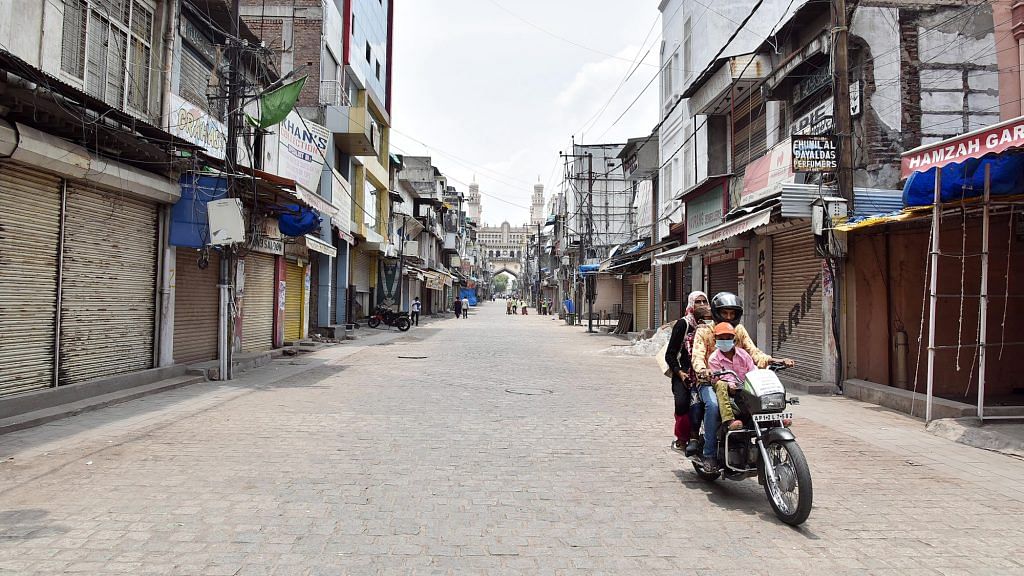New Delhi: The Indian economy suffered its sharpest quarterly contraction in the April-June period, and government finances have also progressively worsened in the first four months of this fiscal, two separate data sets released Monday showed.
India’s economy contracted by a record 23.9 per cent in the first quarter of 2020-21 as the Covid-19 pandemic and the consequent nationwide lockdown impacted manufacturing, construction and service sectors like hotels and transportation. The economy had grown at 5.2 per cent in the corresponding year-ago period.
Data released by the National Statistical Office showed that construction activity was the worst-hit in the quarter, contracting 50 per cent, followed by trade, hotels and transportation at 47 per cent, and manufacturing at 39 per cent. Agriculture was the only silver lining, registering a 3.4 per cent growth in the quarter.
In line with the consumption shock forecast by the Reserve Bank of India on account of the pandemic, private final consumption expenditure contracted by 27 per cent. RBI, in its annual report released last week, had flagged the adverse impact of the pandemic on discretionary spending as well as the record low consumer confidence levels that suggested recovery in demand may take longer.
Gross fixed capital formation — an indicator of investment demand in the economy — contracted by 48 per cent in the quarter. Exports and imports also contracted during the period.
Spending by the government, as reflected by government final consumption expenditure (GFCE), provided support to the economy, registering a growth of 20 per cent in the quarter.
Also read: India can grow at 10% but import substitution policy could hurt that, Arvind Panagariya says
Fiscal deficit
Separate data released by the Controller General of Accounts showed that India’s fiscal deficit zoomed to 103 per cent of the full-year budget estimates in the April-July period, indicating the negative impact of the pandemic on the economy and consequently on revenue collections.
Even after factoring in the government’s stated intent to borrow an additional Rs 4 lakh crore in the market to take the total borrowings to Rs 12 lakh crore, the fiscal deficit at Rs 8.2 lakh crore in the April-July period is still at 68 per cent of the expected full-year deficit.
This was mainly on account of sharp contraction in tax revenues. Tax revenues have contracted 42 per cent in the April-July period, as compared to the corresponding year-ago period.
V-shaped recovery
Chief Economic Advisor Krishnamurthy Subramanian, in an audio statement, said India’s stringent lockdown in the April-June period had impacted economic activity.
“Given the higher intensity of the lockdown (as compared to other countries), the contraction is along expected lines,” he said. “India is experiencing a V-shaped recovery and we should expect better numbers in the subsequent quarter.”
Also read: No salary hikes means India’s economic recovery will have to wait even if hiring resumes
